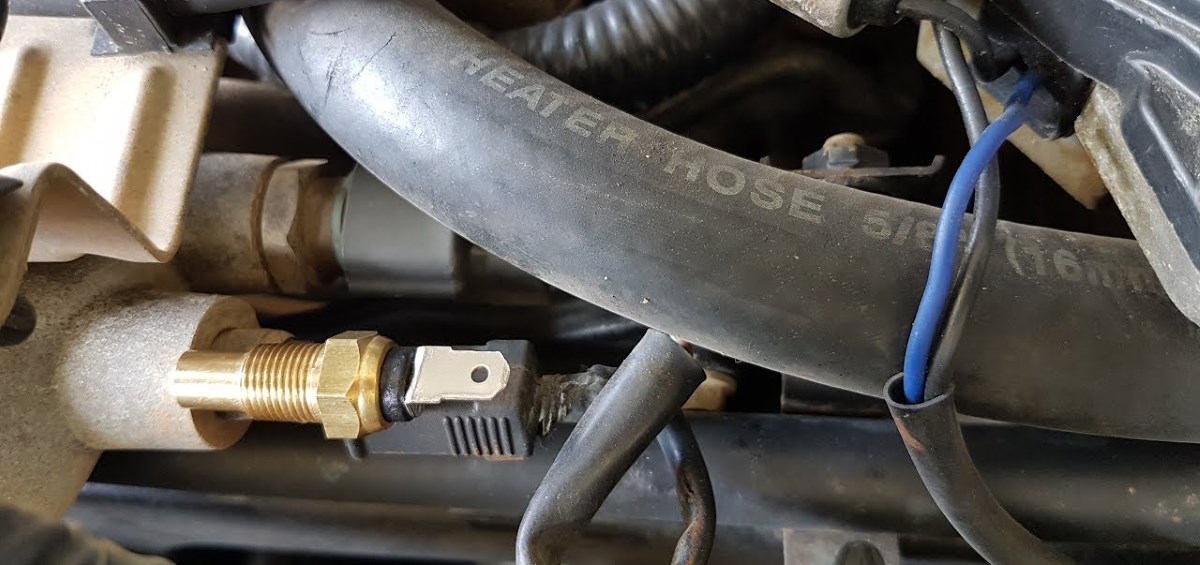How does the engine coolant sensor work?
Alright, so you know how the radiator and coolant stop your motor from cooking itself? Well, to do that right, your engine needs to “know” exactly how hot things are getting under the bonnet. That’s where the coolant temperature sensor comes into play. It’s just a small part, usually tucked in where your coolant flows near the block, but it’s crucial for letting the car’s brain (the ECU) know what’s happening in there.
Basically, the ECU sends a little zap to the sensor, and depending how hot that engine is running, the resistance in the sensor changes. That info goes back to the ECU, which then tweaks things like your air/fuel mix and when to turn the fan on. Keeps everything sweet, whether you’re crawling along Ulster Street with the rest of Hamilton’s morning traffic, or slogging up the Bombays on a roasting summer day.
Want to find out where your coolant sensor’s hiding? Usually not too far from the thermostat, but it can shift around depending if you’re driving a Nissan Qashqai, an old Honda Fit, or a Peugeot. Some Mazdas make it tricky, it’s buried out of sight, but we’ve seen enough of them to track it down pretty easy.
When should you replace your coolant sensor?
Honestly, in most cases, your coolant temp sensor lasts ages – sometimes as long as the whole car. But with all the potholes out in Chartwell, or the bumpy shortcut through Nawton, a connection can get a bit loose, or age just wears it out. A dodgy coolant sensor doesn’t always set off alarms at first, but once it starts failing, things can go downhill fast. If yours isn’t reliable anymore, you can end up with overheating, weird fuel economy, or the engine running rough. We see it across all sorts: Toyotas, Suzukis, even the odd Alfa Romeo from Tamahere or European wagons carting kids out to Cambridge.
There’s no set “use-by” for these sensors – you swap them when you need to, not just for kicks. So it pays to know what to watch out for.
Signs your coolant sensor’s on its way out
- Weird temp readings on your dash – if it says it’s cold but the bonnet’s toasty, or spikes up then drops out of nowhere, time to check it. Could see random warning lights as well, especially in late-model Subarus or Kia Souls.
- Engine going hot or staying too cold – sometimes your fans won’t kick in, and next minute you’re cooking on Avalon Drive at the red lights. Or the engine never seems to warm up, so your heater’s rubbish in winter on the way to Rototuna.
- Hard to start, especially cold mornings – like in June, heading off early to Te Awamutu. If the sensor’s lying to the engine, you’ll get too much or too little fuel and she won’t catch easy.
- Chewing through petrol – older VW Golfs and newer hybrids can both get thirstier if the coolant sensor’s playing silly buggers.
- Check engine light pops up – these days, most cars’ll dob themselves in if the sensor’s way out of whack. That’s your ECU picking up the fault and letting you know.
Why bother replacing it?
Sort your dodgy sensor and you’ll:
- Keep tabs on your engine temp, so you aren’t stranded in Dinsdale with steam blasting out of the bonnet
- Get back some power, save a bit of fuel, and fix those sluggish starts
- Avoid serious repair bills by catching cooling system problems early
- Give your engine the best shot at a long, healthy life
Need help with a coolant sensor around Hamilton?
If you’re worried about a cooked sensor (or any engine temp dramas), bring your car in to Grimmer Motors. Doesn’t matter if it’s a Corolla belting down Peachgrove Road or a hybrid coming in from Morrinsville, we’ll test the sensor and swap it out if it’s on the fritz. Replacement’s usually quick, but more importantly, it’ll save you heaps of hassle later. Your engine will thank you for it – fewer weird noises, better starts, more reliable for all those WOF or car service Hamilton runs you need.

